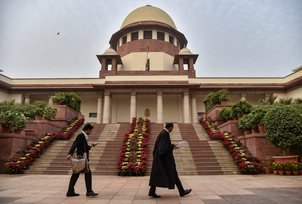The role of the Leader of the Opposition in the Indian Parliament is a statutory post. As per the Salaries and Allowances of Leaders of Opposition in Parliament Act, 1977, the Leader of the Opposition is the member of the Council of States or the House of the People who is, for the time being, the Leader in that House of the party in opposition to the Government having the greatest numerical strength and recognized as such by the Chairman of the Council of States or the Speaker of the House of the People.
In simpler terms, the party with the largest number of seats in the opposition is entitled to designate the Leader of the Opposition. The Speaker is legally bound to recognize the eligible person as the Leader of the Opposition when a request comes from the largest party in opposition. The Leader of the Opposition is not only responsible for criticizing the government’s policies but also for taking responsibility for forming an alternate government should it become possible to do so in the event of the fall of the existing one.
In the past, the Speaker has refused to recognize a Leader of the Opposition despite the Congress being the largest party in the opposition. This has led to confusion and disinformation regarding the eligibility criteria for the post. However, it is essential to note that recognizing a member of the house as the Leader of the Opposition is not a political or arithmetical decision, but a statutory decision.
The confusion regarding the eligibility criteria for the post arose due to a direction issued by the Speaker in the 1950s, which recognized parliamentary parties as ‘parties’ and ‘groups’ for the purpose of allotting seats in the house, time for participating in the debates, rooms in Parliament House, etc. The direction specified that a party is recognized as such only if it had 10% of the strength of the house. A party with less than 10% members was categorized as a ‘group.’ However, this direction did not mention the Leader of the Opposition.
After the enactment of the Salaries and Allowances of Leaders of Opposition in Parliament Act in 1977, the post of the Leader of the Opposition became a statutory post, governed by the statute. Directions or rules made by the Speaker cannot override a law made by Parliament. Therefore, it is crucial to understand that the eligibility criteria for the post of the Leader of the Opposition in the Indian Parliament are based solely on the numerical strength of the largest opposition party, as per the Salaries and Allowances of Leaders of Opposition in Parliament Act, 1977.

